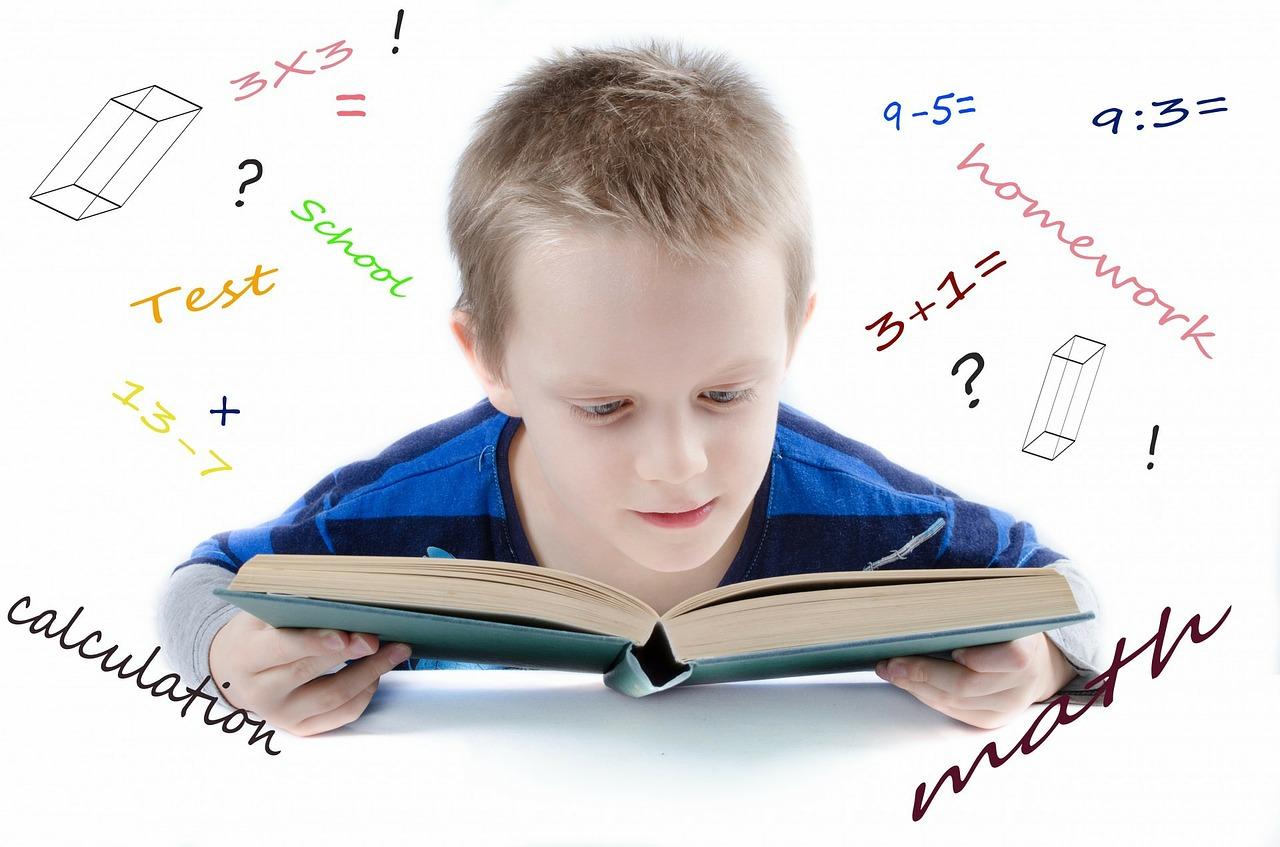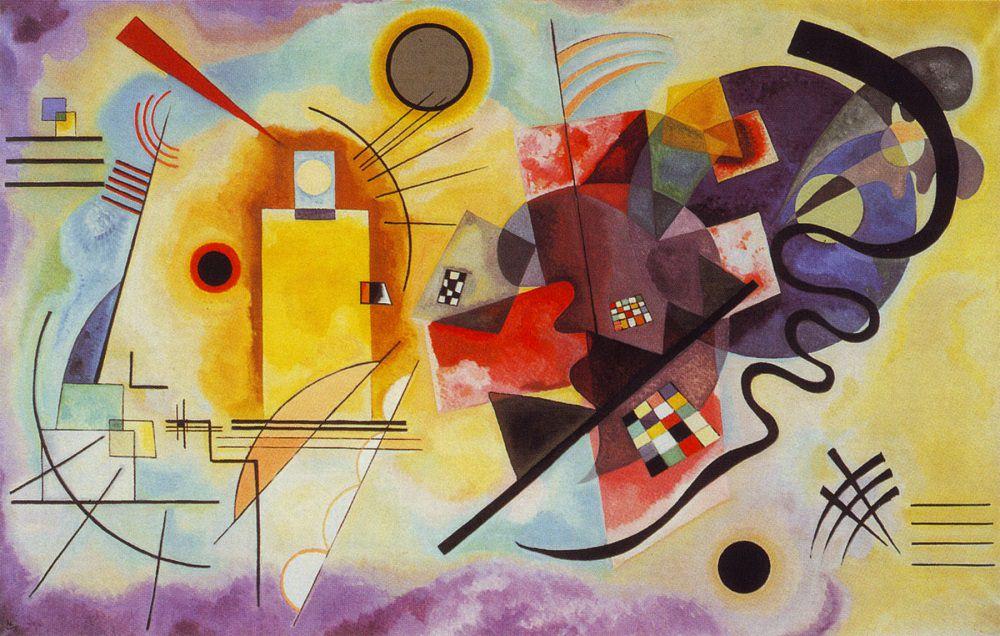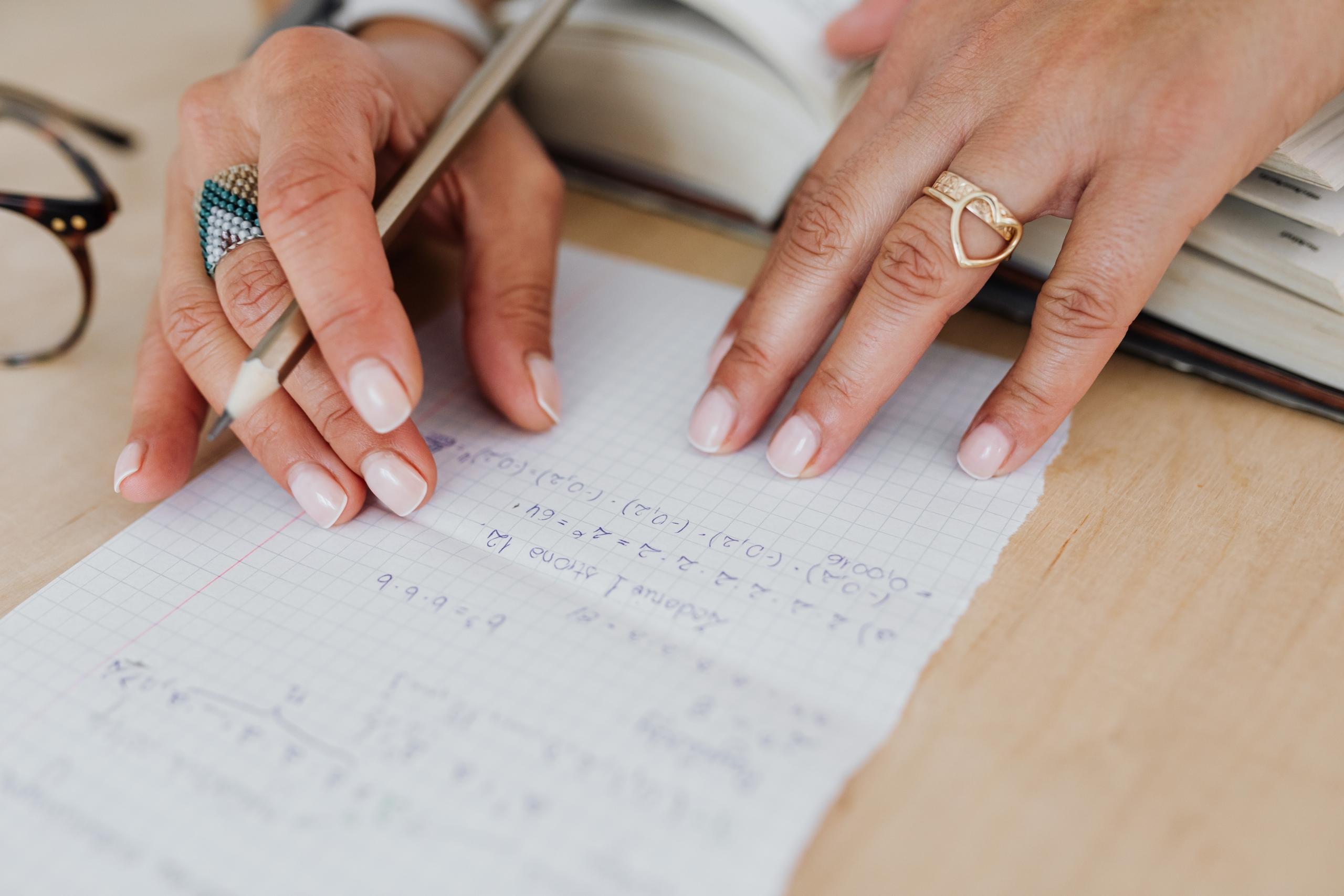Mathematics is often regarded as one of the least favoured core subjects in the school curriculum. Sadly, it can even cause physical symptoms relating to anxiety like panic attacks, headaches and stomach aches.
The first of many misconceptions about mathematics is that some possess a natural aptitude for math, and then there's everyone else. This is one of those misconceptions in mathematics where dull and monotonous learning methods fail to cater to students who require a different approach and are to blame!
In this article, we aim to debunk five stereotypes about mathematics while we also shed light on the extraordinary richness of this subject. We hope that, after reading this piece, you will be able to know that Albert Einstein’s theories and all that lofty mathematical vocabulary is not only for a select few.
If this sounds promising, why not read about the history of maths too?
Want to give private lessons?
Join the Superprof community and share your knowledge with inquiring and motivated students.
You Need to Be a Maths Genius to Succeed in Maths
False!
Since the beginning of maths, the reality is simply that the subject comes easily to others while for others it can frustrating. The fact is that students who do not grasp complexities at first, are not condemned to struggle, they simply need to:
- Take advantage of support.
- Seek out an online maths tutor.
- Consider attending refresher courses and training programmes during holidays.
- Most importantly, dedicate a little more time to doing math exercises instead of watching TV.
The difference between natural and struggling mathematicians often boils down to the amount of time that is invested in understanding and completing exercises. For those who believe they are "rubbish at maths," please rest assured that even high-achieving students have their weaknesses. You likely excel in other subjects. Additionally, it could be that your mathematics teacher is not providing you with the necessary attention. Some teachers may be too rushed, abrupt, or dismissive of students who struggle, which can inadvertently create a sense of failure or even provoke a fear of math revision.

It could be that you could have an alternative way of seeing the world to how your teacher does. If so, don’t panic, achieving success and proving all those misconceptions about algebra wrong, could be simply in finding the right maths tutor for you.
Misconceptions in Algebra: No Use in Real Life
False!
The applications of mathematics are countless and play a vital role in various aspects of our daily lives. Starting with something as simple as splitting the bill with friends, mathematics can help ensure fair distribution and avoid all kinds of misunderstandings.
Mathematics is also highly practical when it comes to calculating prices and discounts.
Even in fields like medical imaging, for instance, mathematics is used to reconstruct images of the human body from specific data points obtained through scanning.
Mathematics also plays a crucial role in operational research within the tourism industry. It involves constructing high-performance algorithms that can calculate the best cost for a given journey in real time, considering all available flight options. This enables travellers to find flights at the most optimal prices.
The study of acoustic waves is another area where mathematics proves its worth. It helps design noise barriers along motorways, concert halls with optimal noise cancellation, and even noise generators for counteracting unwanted sounds, such as anti-tinnitus hearing techniques.
The potential applications of mathematics are virtually limitless, and recognising their indispensability is a significant step toward embracing and appreciating the subject. Learning mathematics is not only useful for academic pursuits but also for navigating everyday life with confidence. It is why it is time to ditch any misconceptions in algebra or general misconceptions in mathematics you may have.
Why not tackle Albert Einstein’s theories from this positive mindset and perspective?
Want to give private lessons?
Join the Superprof community and share your knowledge with inquiring and motivated students.
Mathematicians Are Boring
False!
This is one of those misconceptions about mathematics where attention to detail is confused with having a dull spirit!
While it's true that mathematics requires concentration, hard work, and consistency, it doesn't mean that you can't have fun and enjoy life in your free time. You might find it challenging to answer many questions in an exam if you only read a couple of chapters on functions. However, that shouldn't deter you from pursuing other interests and maintaining an open-minded perspective.
Mathematics is a subject that offers a unique way of thinking and problem-solving, which can be applied to various aspects of life. It's important to strike a balance between studying mathematics and finding joy in other activities. Engaging in hobbies, exploring different interests, and embracing a well-rounded lifestyle can contribute to your personal growth and happiness.
Remember, mathematics is just one aspect of your life, and it's perfectly fine to enjoy other pursuits alongside it. So, work hard, but also make time for relaxation and enjoyment. Find activities that bring you joy and foster an open-minded attitude towards life.
Discover the delightful blog "Math with Bad Drawings" by Ben Orlin, where mathematics, humour, and teaching combine to entertain and educate people about the wonders of math. Through clear examples that relate to the "real world" and popular culture, this engaging blog can easily capture the attention of learners.
By combining mathematics and entertainment, Ben, a UK maths teacher, aims to break the stigma and negative reputation that tends to follow this subject regardless of where in the world for them. His blog showcases the playful side of mathematics, appealing even to the most resistant students. It's a treasure trove of captivating content that is freely accessible.
Furthermore, it's important to remember that mathematicians are dreamers. To dedicate your life to exploring the intricacies of our galaxy, you will need to have your sights set on the stars. So, why not ditch the misconceptions about mathematics, embrace a more playful approach and let your imagination soar?
Consider enrolling in lessons with an online maths tutor to strengthen your mathematical skills and enhance your understanding of key concepts from the comfort of your home.

Art and Maths are Worlds Apart
False!
Classical painting has a long-standing relationship with mathematics, with many masterpieces drawing inspiration from mathematical concepts. Throughout history, maths has played a significant role in inspiring painters, resulting in remarkable works of art that have garnered worldwide recognition.
One only needs to look at Palazzo Pontifici’s "The Arithmetic," housed in the Vatican which showcases the integration of mathematics in classical painting. Another renowned masterpiece is Raphael's "School of Athens," which prominently features influential mathematicians such as Euclid, Pythagoras, and Ptolemy.
Geometry, in particular, served as both a subject and a source of inspiration for artists. Pablo Picasso, the pioneering figure of cubism, revolutionised traditional portraiture and still-life paintings by deconstructing them into geometric shapes. His canvases became visual explorations of form and perspective.
In reality, art and maths have as much of a connection as mathematics and computer science!

In 2001, David Auburn received the prestigious Pulitzer Prize for his play "Proof," which brought the world of mathematics to the theatre. The remarkable work showcased the connection between mathematics and art, highlighting the compelling narrative that can be woven around mathematical concepts.
The connection between mathematics and music is also worth mentioning, particularly during the 20th century. At this time, composers such as Pierre Boulez, who possessed a background in mathematics, embraced the principles of serialism (or serial music) to shape their musical compositions. Boulez's innovative approach exemplified the harmonious fusion of mathematics and music, resulting in captivating and thought-provoking pieces.
Gender Misconceptions about Mathematics
The notion that boys are inherently superior to girls in mathematics is a myth that also needs to be debunked. A recent study published in the journal Frontiers in Psychology provides valuable insights into the influence of confidence on students' academic choices, especially among girls. The study highlights that confidence, not gender, plays a crucial role in shaping students' attitudes towards mathematics and their decision to pursue studies in this field.
By dispelling such stereotypes whether those are general or specific misconceptions in algebra and acknowledging the impact of factors like confidence and individual choices, we can create an inclusive and supportive environment that empowers students of all genders to excel in mathematics and pursue their passions. It is essential to foster a mindset where each student feels encouraged and supported in their mathematical journey, irrespective of gender, so that they can fully explore their potential and contribute to the field of mathematics.

The reality is that women are 3.7 times less likely to pursue studies in science due to a prevailing perception that they are not as capable. This misconception stems from a lack of discourse that emphasises gender equality in terms of intelligence. As a result, many talented girls shy away from mathematics and choose alternative paths, leading to an under-representation of women in scientific professions.
To all the girls out there who have a passion for mathematics, it is crucial not to underestimate your abilities.
Believe in yourself, and you will go far beyond your imagination!
Need some inspiration?
Look no further than Marie Curie, a remarkable Polish physicist and chemist. She shattered barriers by becoming the first woman to receive the Nobel Prize in Chemistry for her groundbreaking discoveries of Radium and Polonium. She remains the only woman to have received two Nobel Prizes in her scientific career. Her pioneering studies challenged the long-held Greek notion of matter being stable and unbreakable.
Through her work, she also participated in the important evolution of maths and contributed to mathematical vocabulary too.
Whether you need maths help in art, want to better understand Albert Einstein’s theories, or improve your mathematical vocabulary, a private tutor could be your answer.
Mathematical success is possible for everyone!
Want to give private lessons?
Join the Superprof community and share your knowledge with inquiring and motivated students.
Summarise with AI:





